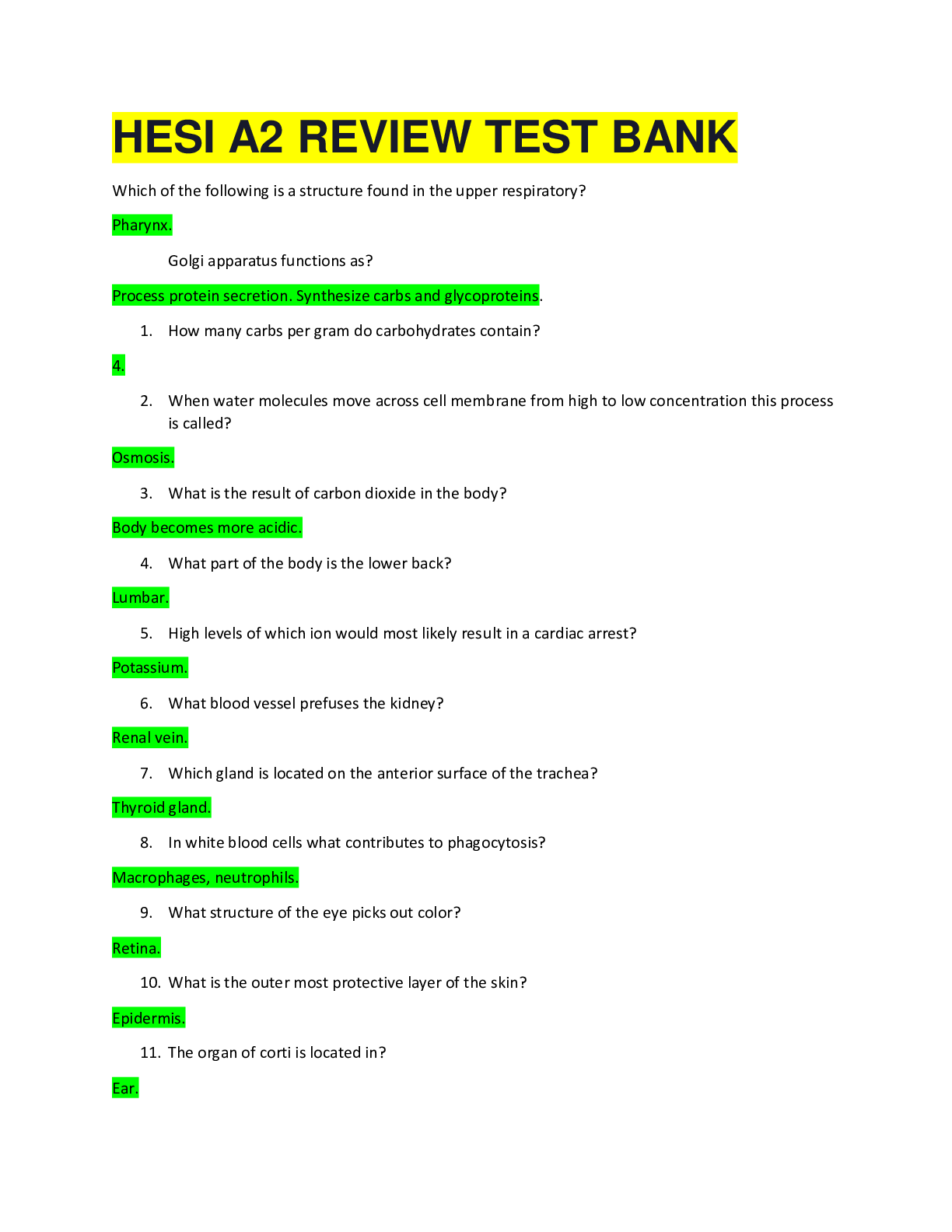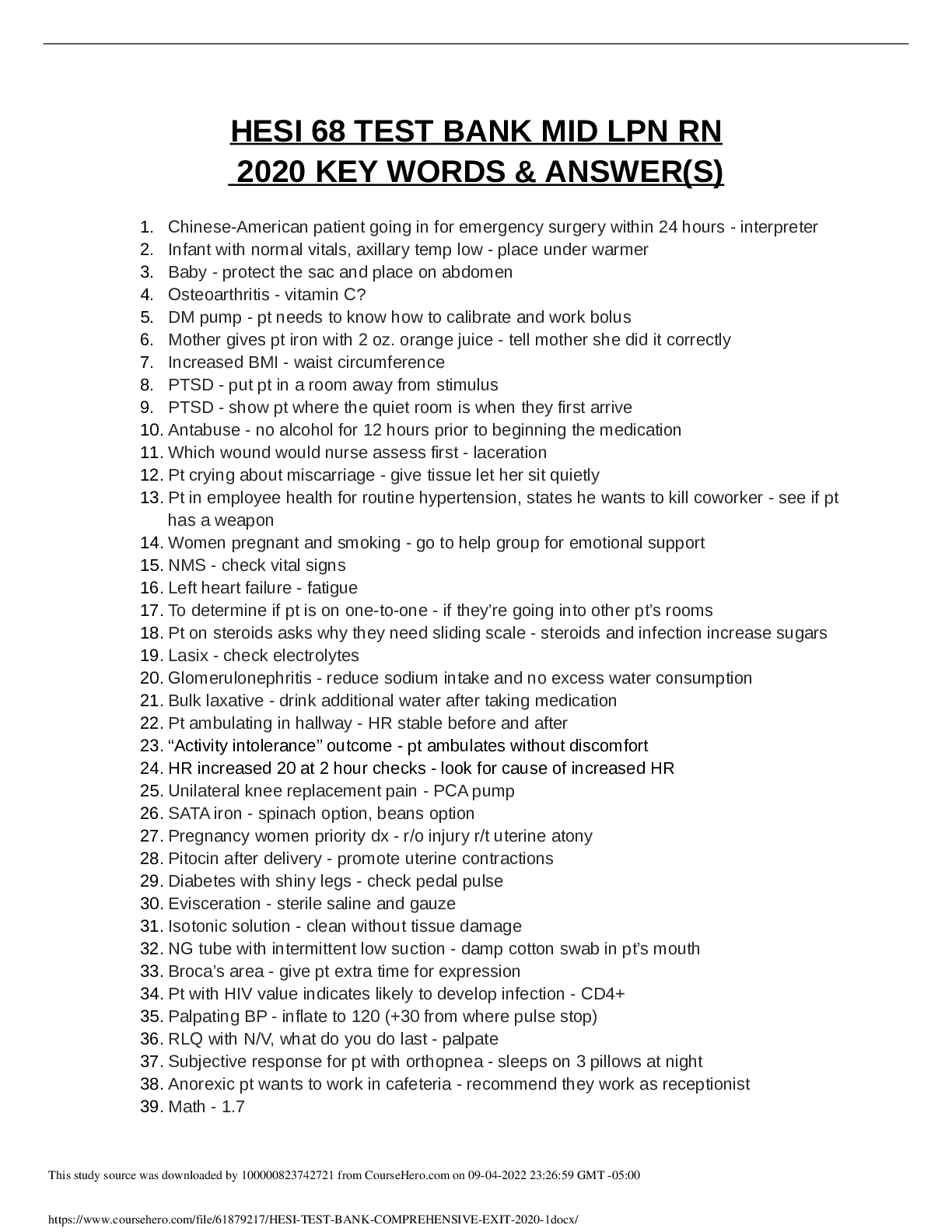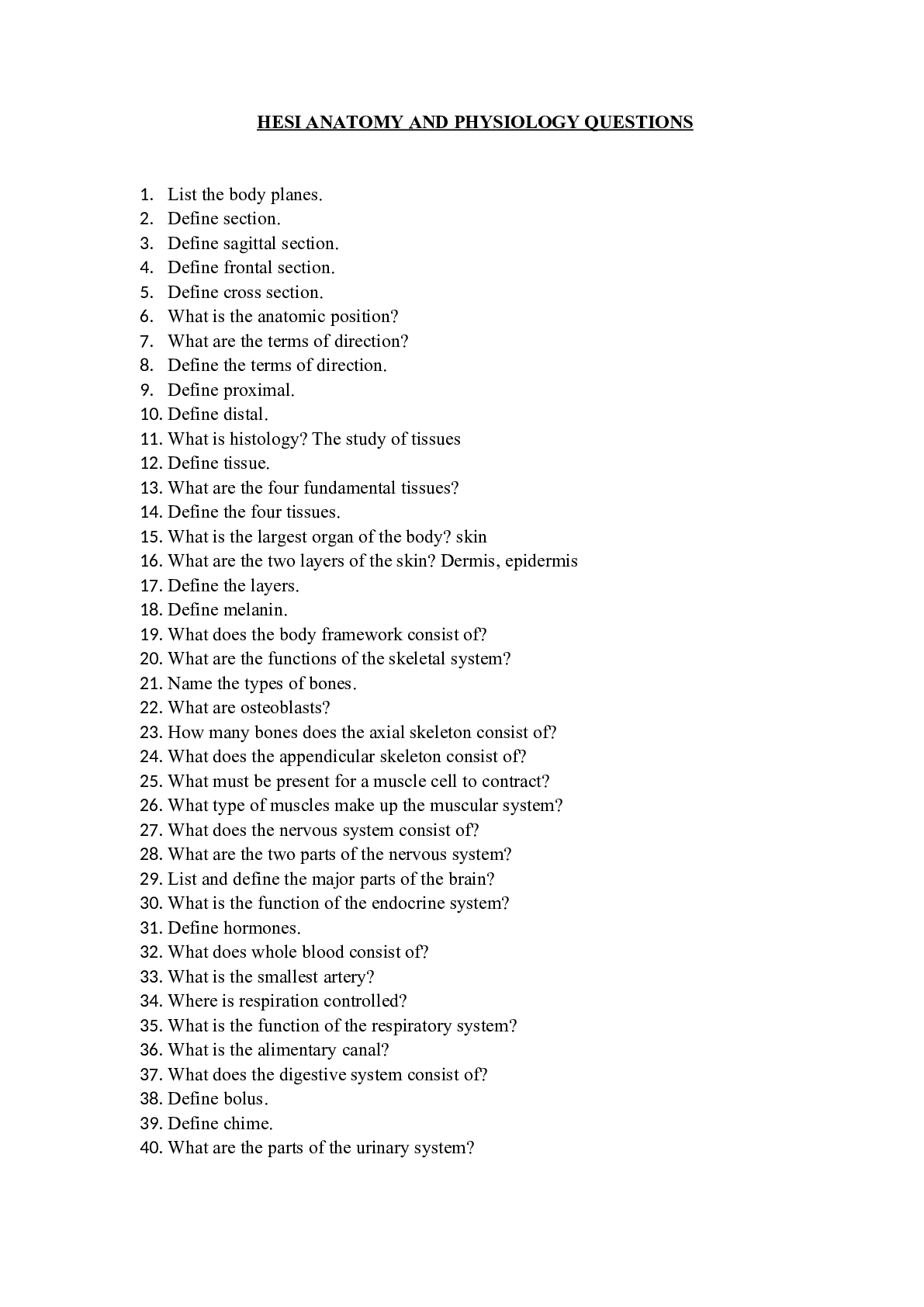HESI A2 ANATOMY AND PHYSIOLOGY_ HESI TEST QUESTIONS & ANSWERS_2021
Document Content and Description Below
HESI TEST QUESTIONS & ANSWERS_2021 The molecule that makes up genes is known as . Farenheit to Celcius: How to Find Mean: Add up all numbers given, then divide by amount of numbers present. ... What is the mean of the following numbers? 43, 33, 67, 55, 12, 24 Of the following, which affix can be used to signify heat? Which of the following parts of speech is used to join words in a sentence? Which of Newton's laws states that for every action there is an equal and opposite reaction? Which type of electromagnetic wave has the highest frequency of all wave types? The rate that an object can move from one location to a different location is known as . Of the following, which is the most common state of matter in the universe in both mass and volume? HESI A2 ANATOMY AND PHYSIOLOGY What are the two types of cellular transport? How many basic tissue types does a human have? Which of the following is not a type of muscle tissue? Which of the following organ systems has the purpose of producing movement through contraction? Which of the following terms means toward the front of the body? The brain is part of the: Which of the following is the name for the study of the structure and shape of the human body? Which of the following is the name for the study of how parts of the body function? How many organ systems are there in the human body? Which organ system includes the spleen? Which of the following terms means close to the trunk of the body? What does the term optic refer to? Superior refers to: 1. The hindquarters 2. Structures toward the center of the body 3. Closer to the head 4. Closer to the feet All cells consist of and and are able to synthesize proteins. 1. DNA and RNA 2. Nucleic acid and cytoplasm 3. Cell membranes and sex organs 4. Tendons and ligaments Connective tissues refer to: 1. Layers of skin and membranes 2. Smooth muscle cells and skeletal muscles 3. Bone tissue, fat, blood, ligaments, tendons, and blood vessels 4. Bone tissue, blood, fat, ligaments, cartilage, tendons, and lymph Interphase refers to: 1. The thickening of the chromatin into chromosomes and the disintegration of the nuclear membrane during the formation of cytoskeleton parts 2. The preparation of the cell for division by replication of its cytoplasmic and genetic material 3. The pulling apart of sister cells into daughter chromosomes 4. The splitting of the cell into two cells, in which the cell begins to furrow During the first phase of meiosis, chromosomes… 1. Cross over and exchange genetic material, forming four chromatids 2. Cross over and disintegrate into chromosomes 3. Split into daughter cells, which are haploid 4. Revert to chromatic as the cellular membrane is pinched The adrenal cortex functions to: 1. Raise and lower blood sugar and carbohydrate metabolism 2. Raise and lower blood pressure 3. Regulate growth and development 4. Monitor blood sugar level and aid in protein and lipid metabolism The sympathetic nervous system functions to: 1. Regulate emergency or stressful situations 2. Return the body to a normal state following emergency or stressful situations 3. Control the five senses 4. Control the movement of the skeletal system What valve is responsible for preventing the backflow of blood from the right ventricle to the right atrium? In order for the actin filaments to bind to the myosin head, what must occur first? During exhalation, the diaphragm does which of the following? Which type of cellular connection is characterized by openings in adjacent animal cells for intercellular exchange to take place? Electrical impulses called “action potentials” move along the axon of a neuron by ? The engulfing of large particles into the cell is referred to as ? Respiration rates are regulated by which of the followin What area(s) of the brain are the most affected if a person is unable to understand written or verbal speech? What is the main function of calcitonin? What vein returns blood to the heart, draining the head, neck, and upper torso? Conversions 1 Kilogram = 2.2 Pounds 128 Fluid Ounces = 1 Gallon 1 Pound = 16 Ounces 100 Centimeters = 1 Meter [Show More]
Last updated: 2 years ago
Preview 1 out of 5 pages

Buy this document to get the full access instantly
Instant Download Access after purchase
Buy NowInstant download
We Accept:

Reviews( 0 )
$15.00
Can't find what you want? Try our AI powered Search
Document information
Connected school, study & course
About the document
Uploaded On
May 21, 2021
Number of pages
5
Written in
Additional information
This document has been written for:
Uploaded
May 21, 2021
Downloads
0
Views
183























